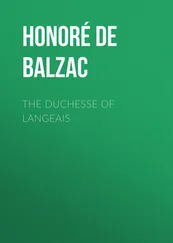Dino Dorothée - Memoirs of the Duchesse De Dino (Afterwards Duchesse de Talleyrand et de Sagan), 1841-1850
Здесь есть возможность читать онлайн «Dino Dorothée - Memoirs of the Duchesse De Dino (Afterwards Duchesse de Talleyrand et de Sagan), 1841-1850» — ознакомительный отрывок электронной книги совершенно бесплатно, а после прочтения отрывка купить полную версию. В некоторых случаях можно слушать аудио, скачать через торрент в формате fb2 и присутствует краткое содержание. Жанр: foreign_antique, foreign_prose, на английском языке. Описание произведения, (предисловие) а так же отзывы посетителей доступны на портале библиотеки ЛибКат.
- Название:Memoirs of the Duchesse De Dino (Afterwards Duchesse de Talleyrand et de Sagan), 1841-1850
- Автор:
- Жанр:
- Год:неизвестен
- ISBN:нет данных
- Рейтинг книги:4 / 5. Голосов: 1
-
Избранное:Добавить в избранное
- Отзывы:
-
Ваша оценка:
- 80
- 1
- 2
- 3
- 4
- 5
Memoirs of the Duchesse De Dino (Afterwards Duchesse de Talleyrand et de Sagan), 1841-1850: краткое содержание, описание и аннотация
Предлагаем к чтению аннотацию, описание, краткое содержание или предисловие (зависит от того, что написал сам автор книги «Memoirs of the Duchesse De Dino (Afterwards Duchesse de Talleyrand et de Sagan), 1841-1850»). Если вы не нашли необходимую информацию о книге — напишите в комментариях, мы постараемся отыскать её.
Memoirs of the Duchesse De Dino (Afterwards Duchesse de Talleyrand et de Sagan), 1841-1850 — читать онлайн ознакомительный отрывок
Ниже представлен текст книги, разбитый по страницам. Система сохранения места последней прочитанной страницы, позволяет с удобством читать онлайн бесплатно книгу «Memoirs of the Duchesse De Dino (Afterwards Duchesse de Talleyrand et de Sagan), 1841-1850», без необходимости каждый раз заново искать на чём Вы остановились. Поставьте закладку, и сможете в любой момент перейти на страницу, на которой закончили чтение.
Интервал:
Закладка:
"The opening of Parliament has caused much discussion. It is said that Peel and the Radicals will easily overthrow the Ministry, but I see no reason for it at this moment. Time will show.
"The Academy meeting caused a twenty-four hours' sensation. M. Molé enjoyed a great triumph. I was unable to hear his speech and it reads to me a trifle forced; such is also the impression of many people, and it has even been called somewhat insignificant. About M. Dupin's speech I have nothing to say. From the point of propriety it speaks for itself, but it amused me. My taste, however, is not particularly good.
"I hope you will make no mistake about the conclusion of the Egyptian question. Whatever happens, Mehemet Ali will preserve the pashalik as hereditary in his family; but what a conflict of opinions among the sailors, the Ambassador and the Minister of Foreign Affairs!
"I am told, my dear Duchesse, that the King of Prussia is a little strange in his conduct, that the fact is remarked among his people, that his popularity is rapidly declining, and that the old King is more regretted every day."
Rochecotte, January 12, 1841. – M. de Salvandy writes as follows: "I think that the Powers are seriously looking for an opportunity and an excuse to bring us back to the concert of Europe. The declarations of Prince Metternich; the Russian despatch with its unusual expressions concerning the wisdom of the King and his services to Europe, the desire to come to an understanding with his Government; and the sentiments, too, of Prussia, which are more French and less Russian than ever, are providing food for reflection in England. Lord Palmerston is finding his course more difficult than he expected. The Duke of Wellington and Sir Robert Peel will propose amendments; it is said that these amendments will be in favour of France and will pass, and the Tories seem certain on the point. I cannot believe it. It is impossible to think that the real successes of Palmerston throughout the Asiatic continent from St. Jean d'Acre as far as China, should mark the date and the reason of his fall. In any case it is certain that England, both as a government and as a nation, is concerned with the question of our isolation and of our liberty of action.
"Here the question of fortifications takes precedence of everything else. It has been simplified by M. Thiers' resolution to make no proposal without the approval of the Government. He abandons or modifies his amendments according to the desires of the Cabinet and so the struggle will not be in that direction. Victory or failure will be shared by MM. Thiers and Guizot. However, by a strange change of opinion M. Guizot seems to be threatened at the outset of this proposed plan. MM. de Lamartine, Passy and Dufaure, forty votes on the Left, together with Tracy and Garnier-Pagès, in short, fifty votes at least will be against the proposal. People are also asking whether Marshal Soult is not against the idea. His position seems somewhat obscure. People wonder whether the objections which he offered to the detached forts in 1833, to the compromise and the continuous circuit walls proposed in 1840, are not more prominent in his mind than any other interest; whether he does not expect to advance his views by rejecting half the law which might easily end in the overthrow of the whole, and also of the oratorical party in the Cabinet, bound as they are to support their project in its entirety. People are also wondering whether this last result is not the object which the parliamentary strategy of the Marshal has in view. The Prince Royal, whom I saw yesterday, seems uneasy on the point. But what then can be the idea in the background? Can it be a combination of Passy and Dufaure, with Passy as the Minister of Foreign Affairs? This would be to restore the Ministry of May 2, which would not act upon the first occasion and will be no more possible now that it is dead. A combination of Soult and Molé is very unlikely; and finally, will M. Molé come forth from his ruins? All this is very obscure. M. Molé is very touchy. There are too many people who would regard adherence as an honourable confession of error. In any case it is certain that M. Guizot's prospects are impaired and that even at the Tuileries the chances of his overthrow are regarded as more probable than they would formerly have been. It is noticed that he makes no mention of London. Can he have reached the point when he begins to doubt of success, though he never doubted it before, and to consider the possibilities of a retreat?
"Rambuteau yesterday held a house-warming in his new rooms in the Hotel de Ville. They are magnificent and are characterised by splendour, luxury and good taste: the paintings, the ornaments and the furniture are admirable; it is pleasant to see an object worthy of praise and since we are now under the electoral régime I am glad to see that it can produce something at least that is earmarked by good taste and a certain grandeur. It is curious to see the town of Paris treat its Prefect in this way. Let us hope that this will pave the way for the kings.
"M. Pasquier has been greatly disappointed that he has not been elected to the Academy in place of M. Pastoret. He had great hopes, but the candidature of M. de Sainte Aulaire was too well supported. He is keeping himself for the place held by the Bishop of Hermopolis. 1 1 The Duc Pasquier was, in fact, elected member of the French Academy on February 17, 1842, in place of Mgr. Frayssinous, Bishop of Hermopolis (1765-1841), high master of the University, who was very ill in January 1841.
Is it not remarkable, Madame, that at his age a man should think of inheriting anything, and should still have ambition, holding the rank he does?"
Rochecotte, January 18, 1841. – Madame de Lieven writes from Paris as follows the day before yesterday: "Madame de Nesselrode is full of the great men of France, and has certainly come to Paris chiefly to see them. M. Eynard of Geneva has them on show; he invites Madame de Nesselrode to dinner with each of them alternately. I do not think he has missed one so far, except Garnier-Pagès.
"The Queen of England's speech is awaited here with some curiosity. People are wondering whether she will say anything suitable in view of the situation here. There is no inclination in Paris to diverge from the line of conduct that has been decided upon; an armed peace, quiet expectation and isolation, threatening no one, neither disturbed nor disturbing. Our neighbours, however, are anxious, and would like to see this state of suspense at an end. Lord Palmerston's obstinacy drives them to despair, for it is but too true that he is the real governor of Europe. Some means of forming a connection for France must somehow be found, and an intermediary has not yet been discovered. It is certain that the Pasha's position will be made hereditary.
"France has made peace with Buenos Aires, and Rosas, the tyrant of this republic, has been appointed ambassador here and will arrive in the spring. England will arrange the difference between Spain and Portugal.
"Conversation is concerned with nothing but fortifications; it is not quite clear whether the Chamber is in favour of them. The King on the one hand and M. Thiers on the other, are taking infinite trouble over the question. The Ministry will support the proposals but will not die of grief if they fail to pass.
"M. de Barante has been ordered to remain at St. Petersburg; some inclination to coquetry has been obvious in that quarter, but time alone will show whether any definite result will follow. M. de Lamartine had an audience of the King which lasted two hours and a half and is said to have been much impressed. He talks a great deal about it. The question of diplomatic changes will not arise until the matter of the fortifications has been settled."
Читать дальшеИнтервал:
Закладка:
Похожие книги на «Memoirs of the Duchesse De Dino (Afterwards Duchesse de Talleyrand et de Sagan), 1841-1850»
Представляем Вашему вниманию похожие книги на «Memoirs of the Duchesse De Dino (Afterwards Duchesse de Talleyrand et de Sagan), 1841-1850» списком для выбора. Мы отобрали схожую по названию и смыслу литературу в надежде предоставить читателям больше вариантов отыскать новые, интересные, ещё непрочитанные произведения.
Обсуждение, отзывы о книге «Memoirs of the Duchesse De Dino (Afterwards Duchesse de Talleyrand et de Sagan), 1841-1850» и просто собственные мнения читателей. Оставьте ваши комментарии, напишите, что Вы думаете о произведении, его смысле или главных героях. Укажите что конкретно понравилось, а что нет, и почему Вы так считаете.












